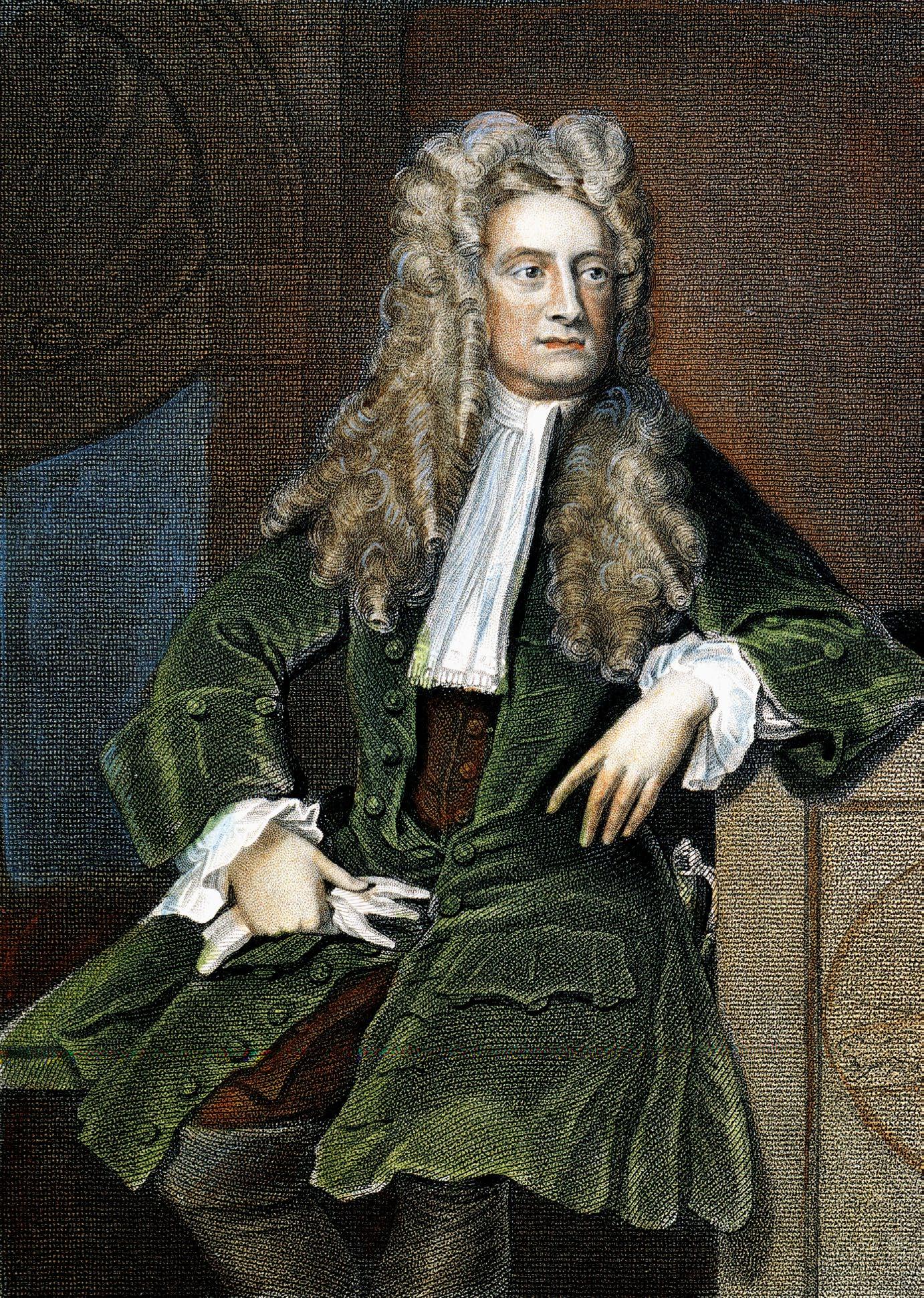
4 minute read
Was Isaac Newton a Freemason?
He has a lodge named after him, but was natural philosopher, heretical Christian and alchemist Isaac Newton a Freemason?
Words: DKS, Editor-in-Chief
Science and spirituality
Not many people liked Isaac Newton. He was touchy, with a thin skin. He also had a prodigious temper. Anyone who questioned his work needed to prepare for a long and unpleasant feud. Nor was he sociable. Scholars of the age gathered in coffee shops and debated publicly, frequently crossing the Channel to compare notes with continental intellectuals. Contrarian by nature, Newton never left England and preferred life as a loner, sitting for days at his desk, filling notebooks with his every thought. His reputation as a scholar rests on his work in mathematics and natural philosophy – the precursor of science – with a special emphasis on what would become physics. But these were only part of his extensive interests, which took him into fields that do not fit with his image as the torchbearer of scientific rationalism. Aged 24, Newton was appointed a fellow of Trinity College Cambridge, and shortly afterwards Lucasian professor of mathematics. College rules required him to be ordained into the Church of England, so he began methodically studying theology. He fervently embraced Christianity but quickly concluded he could not accept Anglican theology on the Trinity and aligned himself instead with Arianism. Seeing the disaster approaching, friendly forces secured an exemption from ordination for the holder of the Lucasian professorship, so Newton’s passionate but heretical Christianity did not derail his university career.
Compelled by the mysteries of alchemy Newton fell in love with the Bible and became convinced the prophetic books – especially Daniel and Revelation – held embedded messages that only a chosen few could understand. As he had been born on Christmas Day, and plainly given insight that others had not, he came to see himself as one of the adepts, specially chosen by God to decipher the universe. He even called
himself Ieova Sanctus Unus (the One Holy Jehovah) in his private notebooks, an anagram of his name in Latin, Isaacus Neuutonus. Away from the respectable world of the universities, alchemy was an alternative and rich tradition of knowledge, offering spiritual, magical and quasi-scientific insights to those who laboured over its arcane texts. Although some branches of alchemy were profoundly scholarly, most natural philosophers viewed it with suspicion, not least because of the many charlatans who grew rich on promises of elixirs of eternal life and compounds to transmute lead into gold. Newton found all of it compelling and was a lifelong devotee, staying up night after night over his crucibles and alembics, endeavouring to unlock the secrets of whether matter could be disassembled and reassembled with the right chemical and spiritual keys.
His fascination with unlocking hidden truths and secrets – whether in mathematics, natural philosophy, the Bible or alchemy – led him to view all these studies as connected. Towards the end of his life, he became convinced that sacred architecture was also a repository of arcane wisdom, and he began studying the temples of the ancient world. His last book, The Chronology of Ancient Kingdoms, contains a detailed numerological analysis of the mysteries embedded in King Solomon’s Temple, which held a special fascination for him.
In the same circles as Freemasons Experimental philosophers were a subgroup of natural philosophers. They founded the Royal Society when Newton was a teenager, and their circle included many who were also fascinated with speculative philosophical Freemasonry. Newton was invited to join the Royal Society and eventually became its president, so knew many leading Freemasons of the generation. Whether or not Newton ever joined Freemasonry is unknown. In 1861, the founders of Cambridge University’s lodge certainly thought he did, as they named it Isaac Newton University Lodge. However, like the Lodge of Antiquity, No. 2’s claim to have had Newton’s contemporary, Sir Christopher Wren, as a member, there is no way of knowing. Both men had the appropriate interests and mixed in the right philosophical circles. But Freemasonry’s records from the period are sparse, and none that survive demonstrate either of them was ever initiated. However, that does not mean they were not Freemasons. On paper, they were exactly the kind of men who would have attended lodges of philosophical Freemasonry in the late 17th and early 18th centuries.
Newton was three years old when Elias Ashmole became the first person known to have been initiated into an English lodge of speculative Freemasons, at Warrington in 1646. And he was 74 when the Grand Lodge of England was formed in 1717. If he was a Freemason, it is unlikely he would have been a particularly sociable one. But for all that, he would have been one of the most fascinating, free-thinking, subversive and unconventional members of the Craft, not just of his age, but of any age.










